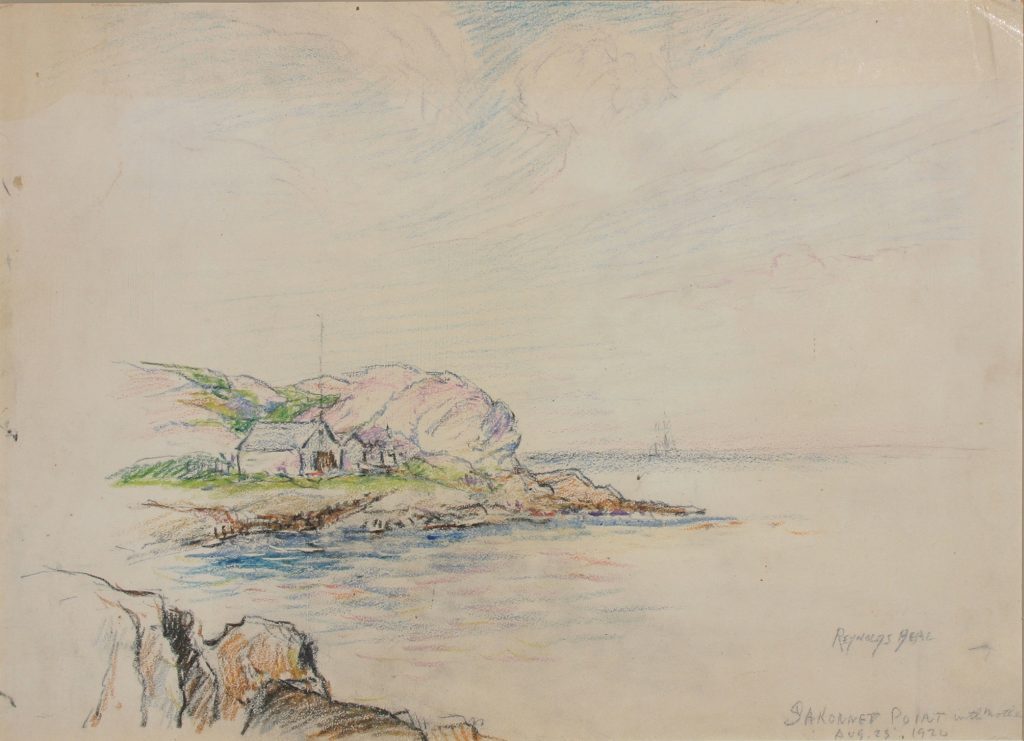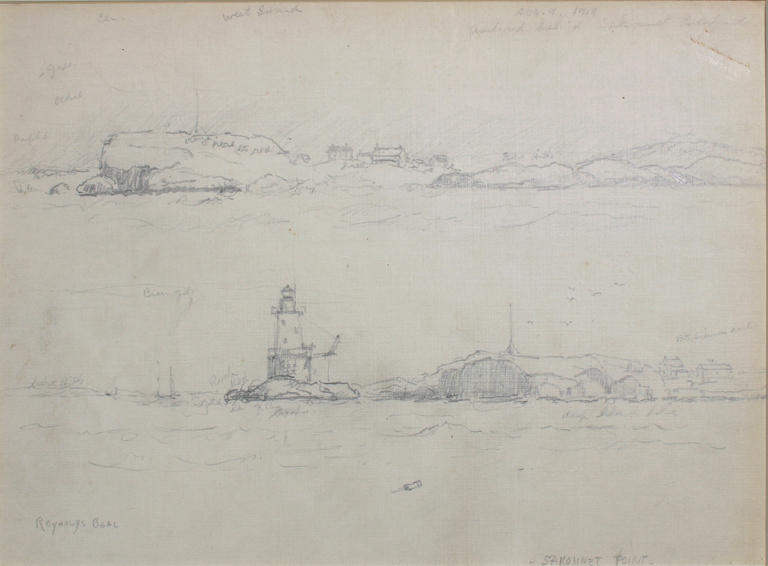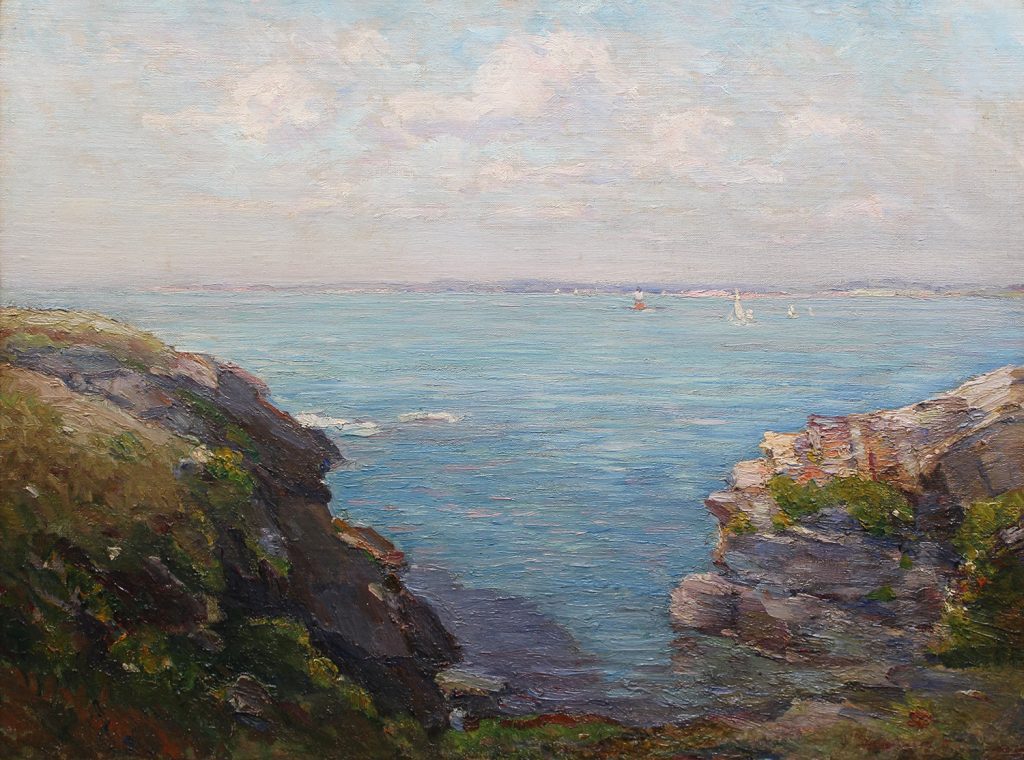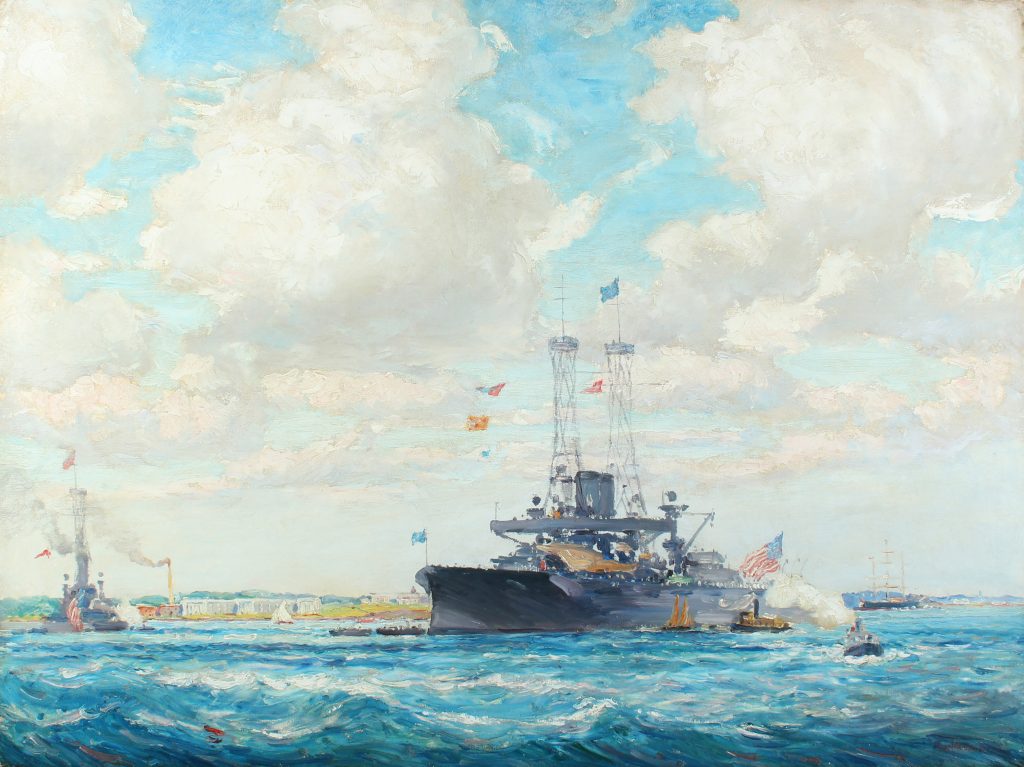REYNOLDS BEAL
1866-1951Painter and etcher Reynolds Beal was born in the Bronx, New York City in 1866, the son of the President of the Central Union Gas Company, later a partner in Central Hudson Gas and Electric. In 1883 Beal made his first trip to Europe, with his family. From 1895 the family made its home in Newburgh, overlooking the Hudson River. He studied naval architecture at Cornell University, but left without obtaining a degree in 1888. His first job was drafting designs for ship engines at the Morgan Iron Works on the East River in Manhattan. In 1891 Beal enrolled in the Art Student’s League, where he studied drawing with John Henry Twachtman. He also studied with William Merritt Chase at his Shinnecock summer school on Long Island. In 1895 he left for a year of study in Paris. Upon his return he established a studio in the YMCA building in New York, which he kept until 1912. By 1902 he was also maintaining a studio at Noank, Connecticut, a yachting and ship-building center where he was easily able to combine his love for painting with his passion for sailing and boats. His enthusiasm for yachting is evident from his many accurately detailed marine paintings, drawings, and etchings. In Noank Beal became closely acquainted with Henry Ward Ranger, who became an artistic mentor. Beal was also fascinated by circuses, and depicted many circus scenes. The Hudson River Valley; Long Island; Newport, Rhode Island; Provincetown on Cape Cod—where he studied etching with George Senseney; the Bahamas and Florida Keys; Bermuda; the Caribbean; Central America; Mexico; Spain, Portugal and the Mediterranean; the coast of Africa; Hawaii; Asia; Australia, New Zealand, Samoa; and Egypt all provided inspiration and subjects for his paintings. He was often accompanied on his sketching trips by his brother, painter Gifford Beal, and artist friends Childe Hassam, Ernest Lawson, Herman Dudley Murphy, Ranger, and others. In 1924 Beal married and moved to Rockport, Massachusetts, which would remain his land-side home base for the remainder of his life. He was an associate member of the National Academy of Design, and a founding member of both the Society of Independent Artists and the New Society of Artists. He also held memberships in: the Society of American Etchers; Salmagundi Club; National Arts Club; the Lotos Club; Century Association; and the Boston Art Club. The artist’s work was exhibited widely throughout the United States and Europe, including: the National Academy of Design; Pennsylvania Academy of the Fine Arts; Boston Art Club; Art Institute of Chicago; Whitney Museum of American Art; the Salon of the National Society of Beaux-Arts and the Luxembourg Museum in Paris. As his career and life progressed through the 1920s, Beal painted less often in oil and turned his attention more to watercolor and etching. He died in Rockport in 1951.
REYNOLDS BEAL
Artworks for Sale
 REYNOLDS BEAL
REYNOLDS BEALSakonnet Point with Mother, 1920
Drawing
9 ½ x 13 1/8 inches (sight size)
Click here for more information
 REYNOLDS BEAL
REYNOLDS BEALSakonnet Point, 1919
Drawing
10 x 14 inches (sight size)
Click here for more information
 REYNOLDS BEAL
REYNOLDS BEALCoastal View with Lighthouse
Oil
18 x 24 inches; Framed: 25 x 31 inches
Click here for more information
 REYNOLDS BEAL
REYNOLDS BEALBattleship at Newport (Most likely the USS Illinois (BB-7))
Oil
35 x 48 inches; Framed: 42 ½ x 54 ½ inches
Click here for more information
